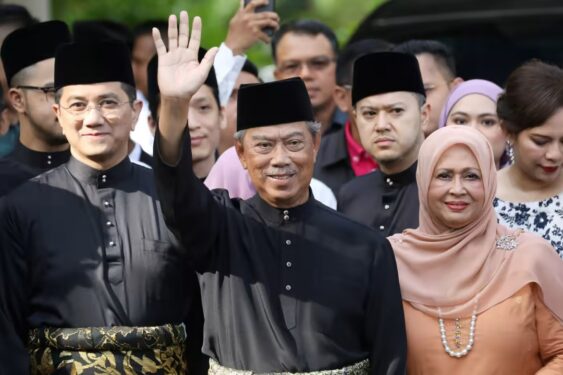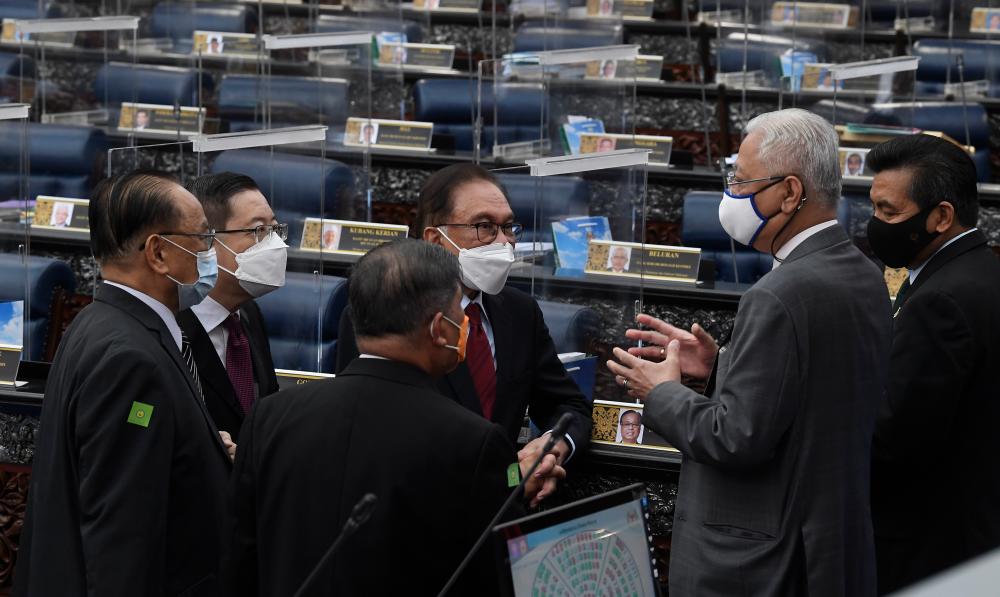ALTHOUGH the recent passage of a landmark Bill to curb “party hopping” is positive for political stability in Malaysia, Fitch Solutions Country Risk and Industry Research believes the country’s political uncertainty will remain as status quo for now.
This as the 15th General Election (GE15) could still be brought forward to as early as next month, creating heightened uncertainty for policy continuity in the near term.
As a result, Fitch Solutions is maintaining Malaysia’s short-term political risk index score at 64.8 (out of 100) for the time being.
The credit intelligence agency noted that GE15, which must be held by September 2023, could be brought forward to as early as November 2022, even though Prime Minister Datuk Seri Ismail Sabri Yaakob said on Sept 26 that he has yet to decide on dissolving Parliament.
“Regardless of the timing, we expect that the outcome of the elections will remain unpredictable, and we continue to flag elevated risks to policy continuity over the coming quarters,” Fitch Solutions said in a statement today.
Malaysia’s politics have become much more fluid and unpredictable since 2018 following the election loss of the Barisan Nasional (BN) coalition during the 14th General Elections (GE14), which saw Pakatan Harapan wresting Putrajaya over.
However, after 22 months in power, the Pakatan Government was brought down in March 2020 after two groups of MPs from the ruling coalition crossed the political aisle and formed an alliance with the then-opposition BN and PAS.

Political instability persisted even after the Perikatan Nasional (PN) Government took over, with tensions reaching a boiling point after UMNO, the largest party in the coalition, withdrew its support, leading to the collapse of the Government after just 17 months.
The current Government is made up of a group consisting of BN, Parti Pribumi Bersatu Malaysia (PPBM), PAS, Gabungan Parti Sarawak (GPS), Gabungan Rakyat Sabah (GRS), and Parti Bangsa Malaysia (PBM), though they do not constitute a formal coalition.
“Anti-hopping Bill positive for political stability”
As the collapse of the Pakatan Government in 2020 was caused by MPs changing party affiliation, Fitch Solutions believes that the passage of the anti-party hopping law, in the form of the Constitutional (Amendment) Bill 2022, will likely be positive for Malaysia’s political stability after GE15, once the next Government is formed.
Under the new legislation, MPs and state assembly persons will lose their seats if they switch parties, while MPs elected as independents will also lose their seats should they formally join any party.
Even though the constitutional amendment was passed in both houses of Parliament and the King has given his royal assent, the law has not come into effect as it has not been gazetted yet.
Meanwhile, Fitch Solutions said it is unclear if BN or Pakatan will form the next Government.
The agency said while UMNO has been pushing for early elections in order to capitalise on their earlier victories in the Melaka and Johor state elections held in November 2021 and March 2022, respectively, whether they can win a simple majority in GE15 is “far from guaranteed”.

“Indeed, PM Ismail expressed concerns on Aug 21 over the possibility of a hung parliament after GE15 and stated that there could be a need for a new alliance to be formed among certain political parties depending on the number of seats won by the different parties,” it noted.
There is also a likelihood that Pakatan could form the Government again if they are able to win at least 112 seats in the upcoming elections or form an alliance with other parties to garner a simple majority, Fitch Solutions added.
This as the electoral roll registered over 21 million voters as of May due to the lowering of the voting age from 21 to 18 years old and automatic voter registration, marking a significant jump of more than six million over GE14.
They said this is likely to increase voter turnout during GE15, which could, in turn, dilute BN’s traditional Malay voter base.
“Moreover, it appears that Malaysian youths are less supportive of race-based policies, which BN has been an advocate of,” Fitch Solutions added, pointing to research that said youth votes helped propelled Pakatan to victory in GE14. – Oct 4, 2022
Main photo credit: Bernama









